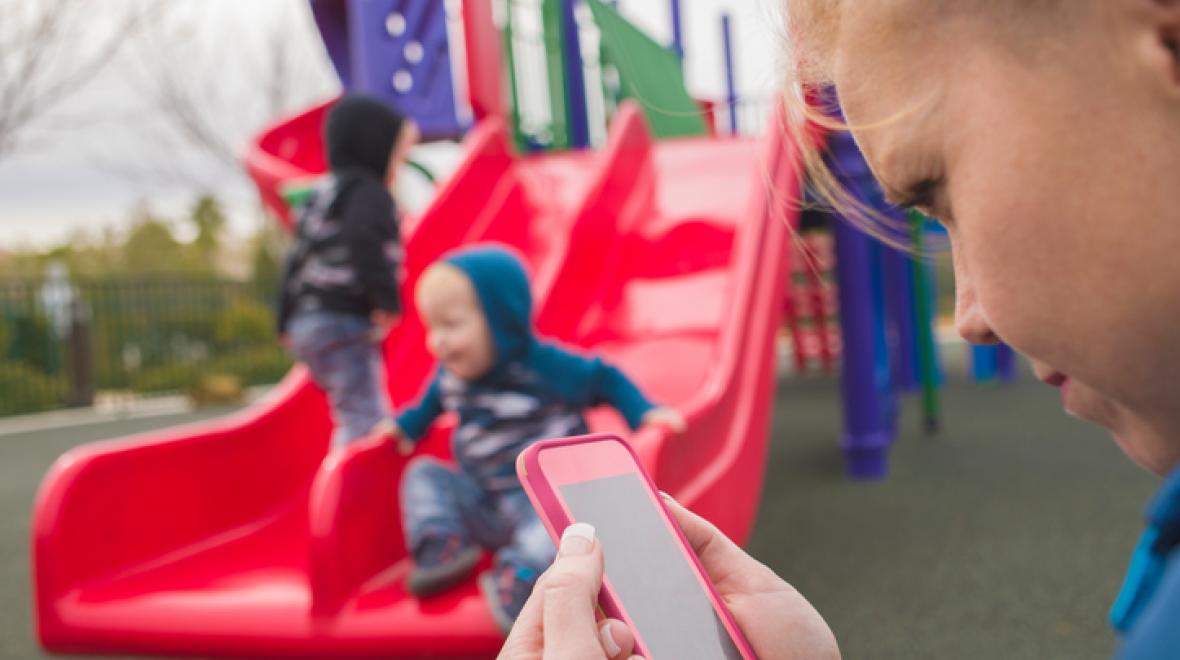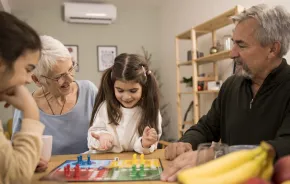
We all the know statistics: Kids are spending six hours a day (or more) in front of screens. Researchers believe this increase is actually being linked to ADHD. And our addiction to technology is essentially what one doctor is calling “digital heroin.”
If you think about it for a minute, it’s scary stuff. This abundance of technology is a relatively new phenomenon, and we don’t really fully understand the long-term effects.
“Family time is being squeezed out for screen time,” says Suz Lipman, author of “Fed Up With Frenzy: Slow Parenting in a Fast-Moving World.”
She is a big believer having boundaries, not just for kids but for the entire family. “We have to limit our use of electronics to allow more time to enjoy traditions and create memories,” she says.
It’s easy to say it’s the kids that have the problem, but we have responsibility in it, too.
It’s not that I’m a technology hater. I have two kids with their own cell phones and Snapchat accounts, which is a whole other topic. But when I hear complaints along the lines of “kids and technology these days,” it always makes me pause.
Because the honest truth is that many adults have just as much of a technology addition as kids. With the average cell phone user checking their phone around 80 times a day (six to seven times an hour), it’s clear that a lot of us have too much technology in our lives — not just kids.
It’s never easy to admit that you’re part of the problem, but it’s so important that we do. It’s easy to say it’s the kids that have the problem, but we have responsibility in it, too. Here are some of those ways screens are taking over our lives and what we can do about it.
We aren’t always the best example. Restrictions and limits are good. For instance, in my house we have a rule of “no phones at least 30 minutes before bed.” However, if I expect my kids to stick to this rule, I have to do it myself. It’s not always easy — you remember that one last email you didn’t get to or you receive a late text. But we can at least strive to follow the same (or similar) rules we put on our kids.
If there are no phones at dinner, then it should apply to everyone at the table. And if there are TV limits, then it’s good to try to apply those to yourself, too. I’m not saying there won’t be some exceptions or discrepancies. However, there are benefits to the brain when you limit intake, and those benefits are also good for adults.
We miss moments. If you’ve ever been a parent at a sporting event, you’ve seen someone’s mom or dad miss out on their great hit or amazing shot because they glanced away for just a few seconds. Maybe you’ve even been that parent, and you felt horrible. (As a basketball parent, I know how quick it is to miss something.)
Even if you don’t have kids in sports, we all know we’re not as present as we can be. Yes, technology can bring us together in some case, but it’s the whole “there’s a time and a place” adage. Sometimes you just have to put the phone out of sight and out of mind so your kids can see you’re right there.
We are too connected. We’ve let ourselves become attached to our devices, teaching us to expect immediate responses and results. Remember the whole thing about screen time being linked to ADHD? It’s no wonder. We actually have to retrain our brains to calm down and chill out because we want to react and respond immediately. Our kids see this and mirror this. So if we want them to break away, then we have to as well.
“It also allows us to simply recharge, which is highly necessary in many of our frenzied lives,” Lipman says.
We stop doing important things.I’ve always been a reader, but sometimes I go in these long stretches of not reading books at all. I know this is bad for me personally. In fact, when I make reading part of my routine, I can actually feel my brain relaxing and slowing down.
Everyone has those important things that are good for you. Maybe it’s painting, meditation and cooking. Ask yourself if being on technology has affected some of those things. (I feel like we’ve all had those moments where we just jump on Facebook quick, and then we realize we wasted half an hour.) Have a similar discussion with your kids. Then, as a family, make a vow to make time for things good for your physical and mental well-being.
We don’t talk enough. Text and social media conversations are on the rise, but real face-to-face chats are decreasing. Emojis can’t compete with conversations, a smile, or a hug.
Our kids are definitely talking less overall, but so are adults. Even though our lives feel busy and chaotic, it’s important to remember the value of talking. If we can model real conversations, then it’ll help set the stage for our kids.
“We need to put the shiny devices down and engage with our families and surroundings,” Lipman says. “In multiple studies, kids report feeling neglected because of their parents’ media habits. It’s up to us to change that.”
It’s easy to put technology as a problem just for kids, but if we’re being honest, it’s slowly creeping into all of our lives more and more. We aren’t powerless, though. We know the ramifications of too much technology, and it’s up to us to take control. We set the standards and rules, and we can lead the way. Trust me — your future grown-up child will thank you.











